The content of the article
A trip to the dentist is expensive and unpleasant pleasure. In order not to become a regular client of the dentist, it is necessary to regularly take care of the entire oral cavity, including the teeth, tongue and cheeks. Hygiene procedures take only 15–20 minutes a day, but they protect from caries, diseases of the gums and mucous membranes. And if, in addition to toothpaste, to acquire additional funds, the smile will become healthy and snow-white.
Choice of hygiene supplies
How does teeth care begin? With a selection of pasta. The composition of this tool directly depends on how strong the enamel will be, whether tartar or periodontitis will appear. The cleaning agent must be supplemented with a brush, soft enough and at the same time tough, and a rinse aid that disinfects the oral cavity.It is desirable that in the bathroom cabinet always lay the packaging of dental floss, and once a year you should visit the dentist and carry out professional cleaning with ultrasound and special polishing preparations.
The subtleties of the choice of toothpaste
What guides the average consumer who buys cleaning products for the oral cavity? Pleasant aroma, the presence or absence of the whitening effect, reasonable price. Dentists recommend paying attention to two main factors:
- To which group does the toothpaste belong?
- the composition of the product.
There are hygienic varieties and therapeutic. The first ones freshen breath well and remove food remains from enamel, but they do not save from caries, inflammation and other dental diseases. Hygienic paste recommended for people with healthy teeth, the rest should buy therapeutic and prophylactic.
Cleaners belonging to the second group prevent plaque and have an anti-bacterial effect. There are antiseptic varieties that destroy the foci of inflammation in the mouth.Usually, they contain extracts from medicinal plants, so they kill the infection and increase local immunity, but such pastes cannot be used for a long time.
Fluorine variants are contraindicated in children, because babies can swallow a little while cleaning their teeth, and some secretly like to taste the contents of a tube from their parents. Adult whitening paste is recommended to use no more than 2 times a week, otherwise the aggressive composition can harm enamel. You can not buy hygienic products in this category, if drinking water contains a lot of fluoride, otherwise plaque and tartar will appear.
There are also pastes for the treatment of bleeding and strengthen the gums. For patients with sensitive teeth, dentists recommend products that contain such bioactive components as:
- potassium chloride or strontium;
- calcium nitrate;
- fluoride ions;
- hydroxyapatite.
Healing pastes are used for no more than 2 weeks, otherwise the digestion may be disturbed and the enamel condition worsens, because they do not clean the teeth poorly. Then you should go to the usual hygienic varieties, if the dentist does not recommend to extend the course.
Correct toothbrush
Electric and ultrasonic, for cleaning teeth and tongue, hard and soft. Brushes are different, but you need to choose only one. First you need to look at the origin of the bristles, which is natural and synthetic. Residents of civilized countries use only the second version, obtained from artificial materials. They know that bacteria breed in natural brushes and a fungus can start, and small villi fall out and enter the intestine, causing irritation.
The second point is the stiffness:
- Ultra soft varieties are recommended for patients with bleeding and hypersensitivity.
- Models with medium hardness are suitable for people who have not damaged enamel, no caries or inflammation of the gums.
- Soft brushes are designed for young users and old people.
- Ultra-tough ones are usually bought as directed by the dentist if you need to get rid of yellow bloom or tartar.
There are orthodontic brushes designed to care for braces. They have a thinner nap and a special shape that allows them to penetrate into hard-to-reach places.The natural brush needs to be changed every 2–4 weeks, and the synthetic one every 3 months.
Dental elixir and thread
Who and why should buy a rinse with paste? Completely healthy people who have never had inflammation or bleeding gums, who did not have to get rid of an unpleasant smell and treat caries, this hygienic means may not be necessary. The rest can not do without rinse, especially if:
- There are chronic diseases in the mouth;
- prostheses or implants were installed;
- the enamel layer is too thin, so there is tooth sensitivity;
- a person drinks more than two cups of coffee, tea or a glass of wine every day;
- I recently had to remove a tooth or undergo surgery in the mouth.
Rinse, like pasta, are therapeutic and prophylactic. The second clean and disinfect the hard-to-reach places between the teeth, protecting from caries. They contain aminofluoride or sodium fluoride, but the concentration of the substance should not exceed 250 ppm.
Healing options are anti-inflammatory and firming, whitening and complex.They are suitable for adults and children who have dental problems, but you can use such conditioners no more than 3 times a week.
If alcohol is present in the composition of the dental elixir, it is contraindicated for young consumers from 6 to 18, as well as for people who drive.
Mandatory attribute of proper care for the oral cavity - dental thread. Recommend options without wax coating, because small particles of this substance can get stuck in the gaps between the teeth. It is desirable that this accessory was silk and very thin.
If the teeth are close to each other, it is recommended to be limited only to the brush and rinse. The thread should slide easily, otherwise it will injure the enamel and gums.
Brushing teeth properly
Even perfectly selected dental equipment will not protect against caries and inflammation if used incorrectly. Teeth are cleaned daily: in the morning, 30 to 40 minutes after breakfast, and in the evening, shortly before bedtime.
Starting with molars, gradually moving to the canines and front. The brush slides from the gums to the tips, as if sweeping away all the garbage.Horizontal movements alternate with circular and vertical directions, capturing 2-3 teeth at a time. Give each 10-20 seconds. Hygienic procedure takes at least 4 minutes.
The tops of the molars should be cleaned with the same “sweeping” movements as the other teeth, moving from the throat to the middle of the mouth. Complete the procedure with a neat gum massage to improve blood circulation. Be sure to clean the tongue using a brush with a ribbed nozzle or a special rough spatula, which is sold in a pharmacy.
After eating the mouth is advised to rinse with boiled or distilled water. Some carry a cocktail of soda and salt with them, but with such regular use, they destroy the enamel and injure their teeth.
Additional recommendations
- Do not add crushed activated carbon to the paste. It does have a whitening effect, but at the same time this component destroys the protective shell of a smile and irritates the gums. This rule applies to soda and other additives that "popular" experts like to advise.
- If you can not rinse your mouth after eating, you should finish the meal with an apple.The acids contained in this fruit, clean up the raid and slightly brighten the smile. But apples are emergency measures, you can’t replace them with a full teeth brushing.
- Chewing gum is useful, but only sugar free varieties. They remove leftover food from the mouth strip and refresh breath. Sugar variants provoke caries, as well as sugary drinks: tea, juice, compotes and soda.
- During brushing, do not press hard on the teeth, so it is recommended to hold the brush like a ballpoint pen.
- Infusions of plantain or beet leaves are a good prevention of periodontitis and other diseases of the gums. In the morning, immediately after waking up, the mouth cavity is recommended to be rinsed with sunflower oil. The product disinfects and makes the smile brighter by a tone or two. Wash off the remaining oil should be salted water.
- To use floss once a week, after evening brushing your teeth.
Useful and junk food
Oral health depends on the diet. In cottage cheese, dairy products and red fish a lot of phosphorus and calcium. Minerals strengthen the tooth enamel from the inside, so it is recommended to consume daily meals with their content.
Tough vegetables and fruits like carrots, cucumbers, beets and peppers are good for healthy teeth and gums. They scrape bacteria off the surface of the enamel and massage soft tissues. Celery, parsley, scallions and dill should be added to the menu. In summer, eat 200–300 g of strawberries, grapes, strawberries and cranberries daily. And in the winter to buy cashews, almonds, oranges and grapefruits. These products are rich in vitamins and phytoncides, which have antibacterial properties and strengthen the immune system.
Sweet tooths are advised to replace sweets and sugar with raisins. Dried grapes contain components that destroy bacteria that cause tooth decay. Similar properties have hard cheese, which should complete dinner or breakfast. Green tea is also useful, because it has antioxidants and substances that neutralize acids. Enhance the effect of the drink can be a spoon of natural honey.
Tip: You can not combine hot tea with cold ice cream. Sudden temperature drops are dangerous for enamel: they contribute to the appearance of microcracks and increase sensitivity.
What you need to know about teeth
- An unpleasant smell bothers you, but the dentist says the mouth is healthy? It is necessary to check the stomach and lungs, perhaps it was in them that the infection hid or there is a hidden inflammatory process.
- To whiten your teeth should only specialist. A variety of folk methods are not only ineffective, but can destroy the enamel, which will lead to weakening and destruction of teeth.
- It is cheaper to prevent caries and other dental diseases than to put seals or implants, so you should go to the dentist once every 6 months for a routine check.
- Teeth is one of the strongest and strongest parts of the body, but they cannot open bottles, prick nuts and bite down threads.
People who accustom themselves to regularly clean the mouth, use the right products and go to the dentist for no reason will be able to forget about the existence of caries, periodontitis and unpleasant smell for many years. Therefore, it is time to arm yourself with a brush and toothpaste, stock up on flossing and rinse and become a little healthier.
Video: how to brush your teeth and care for your mouth





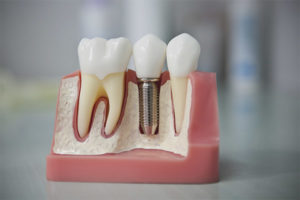
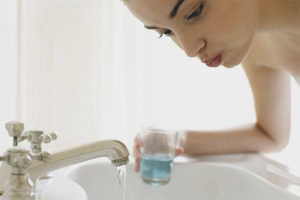
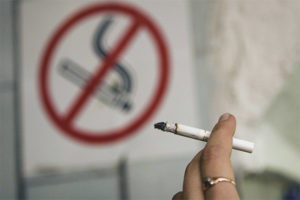
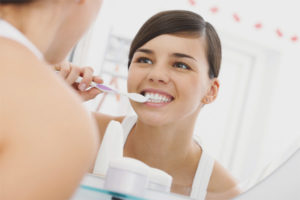
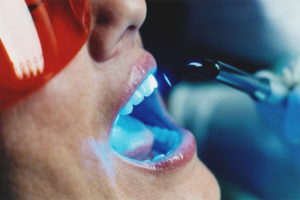
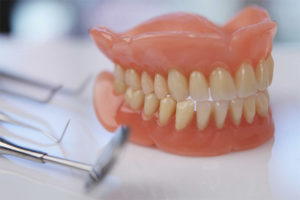
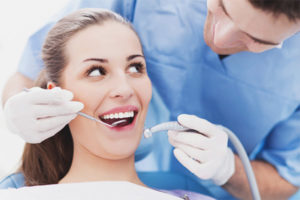
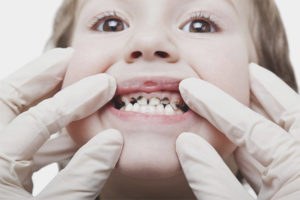
To send